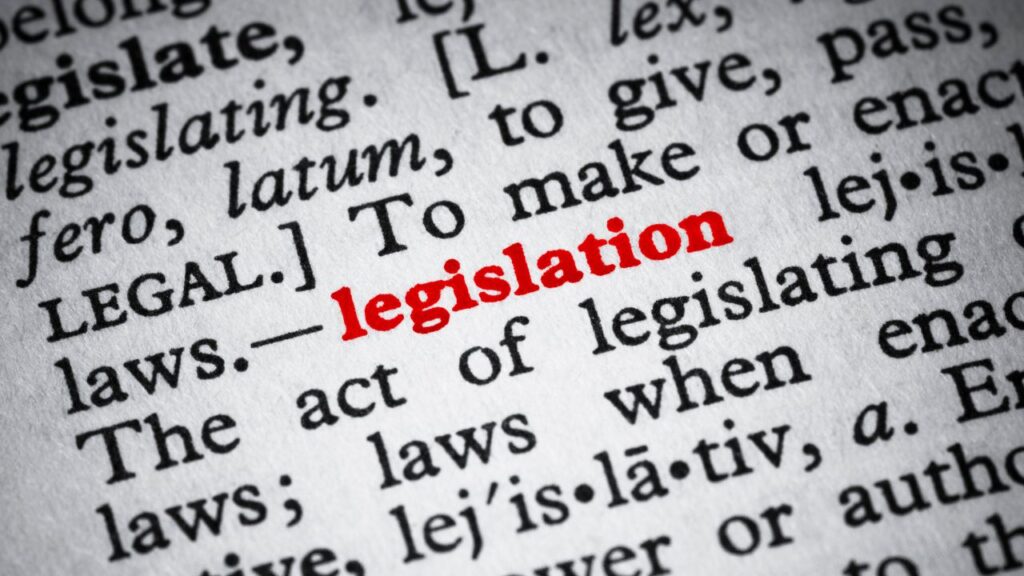Unravelling The Legal Responsibilities of a Property Management Company
14 August 2023
Welcome to our comprehensive guide that delves into the intricate world of property management legal responsibilities. As a specialist residential property management company catering to large corporate clients, we understand the importance of navigating the legal landscape with precision and diligence.
- Property Management Legal Responsibilities
- Key Roles and Legal Responsibilities of Property Managers
- Complying with the Law
- Demystifying the Legal Responsibilities of Property Managers
- Beyond Maintenance
- Legal Foundations
- Corporate Property Management
- The Importance of Legal Responsibilities in Property Management
- Safeguarding Corporate Interests
- Proactive Compliance
- From Contracts to Compliance
- The Legal Landscape
- Building Trust through Compliance
Property Management Legal Responsibilities
Property management entails a myriad of responsibilities, and legal obligations form the bedrock of our operations. We’ll shed light on the fundamental aspects of legal duties and explore how they intersect with the smooth functioning of private residences owned by corporate entities.
Key Roles and Legal Responsibilities of Property Managers
Property managers play a pivotal role in overseeing and maintaining corporate-owned residential properties. Their multifaceted responsibilities encompass critical legal aspects that ensure compliance with relevant laws and regulations. From managing lease agreements and tenant screening to handling property maintenance and financial matters, property managers act as the bridge between corporate property owners and tenants, fostering a harmonious and legally sound environment for all stakeholders involved.
Role 1: Lease Agreement Management and Compliance
Property managers oversee the creation, execution, and enforcement of lease agreements. Ensuring that these contracts adhere to legal regulations and comply with fair housing laws is crucial to protect both the interests of the corporate property owners and the rights of the tenants.
Role 2: Tenant Screening and Selection Process
Property managers are responsible for conducting thorough tenant screening to identify reliable occupants. Complying with fair housing guidelines, anti-discrimination laws, and privacy regulations is essential while assessing potential tenants’ eligibility and making selection decisions.
Role 3: Property Maintenance and Repairs
Property managers must ensure that the corporate-owned residences are well-maintained and adhere to safety standards. Meeting legal requirements for maintenance and promptly addressing repairs helps mitigate risks and maintain the habitability of the properties.
Role 4: Rent Collection and Financial Management
Collecting rent, handling security deposits, and maintaining financial records are integral aspects of property management. Property managers must follow legal protocols for rent collection and maintain transparent financial practices to avoid legal disputes.
Role 5: Handling Evictions and Legal Disputes
In unfortunate circumstances, property managers may have to initiate evictions due to lease violations or non-payment of rent. It is vital to navigate eviction laws carefully to protect the interests of corporate property owners while adhering to tenant rights. Additionally, resolving legal disputes that may arise during tenancy requires understanding relevant laws and implementing fair resolutions.
Complying with the Law: Essential Duties of a Property Management Company
Property management companies have a fundamental duty to abide by legal requirements to ensure seamless operations and protect the interests of their clients. By adhering to essential legal obligations, property managers can build a solid foundation for successful corporate property management.

Legal Requirements for Property Management Companies
Understanding and complying with the laws that govern property management is paramount. From fair housing regulations to tenant rights and environmental laws, property managers must stay well-versed in legal requirements to avoid legal pitfalls and maintain compliance.
Ethical Considerations in Property Management
Beyond legal obligations, ethical considerations play a vital role in property management. Property managers must act ethically and professionally, respecting the rights of tenants, handling sensitive information responsibly, and making impartial decisions to ensure fair treatment for all parties involved.
Importance of Proper Record-Keeping and Documentation
Accurate record-keeping is not just good practice; it is a legal necessity. Property managers must maintain comprehensive records of lease agreements, financial transactions, maintenance requests, and communication with tenants and property owners. Proper documentation not only helps in case of legal disputes but also demonstrates transparency and accountability.
Demystifying the Legal Responsibilities of Property Managers: A Corporate Perspective
Property management companies, from a corporate perspective, shoulder critical legal responsibilities that influence the success and reputation of corporate-owned residential properties. Understanding these legal duties is essential for fostering a strong partnership between property managers and corporate clients.
Corporate Expectations from Property Management Companies
Corporate clients rely on property management companies to uphold the highest standards of legal compliance and professionalism. Understanding corporate expectations allows property managers to align their services with the specific needs and objectives of their corporate partners.
Legal Liaison between Corporate Companies and Property Managers
Effective communication and legal liaison between property managers and corporate clients are vital for harmonious property management. By providing clear and transparent legal advice and updates, property managers can ensure that corporate clients stay informed and confident in their decision-making.
Key Metrics for Assessing Legal Compliance in Property Management
In the UK, property management companies must comply with specific legal requirements, such as the Landlord and Tenant Act, Tenancy Deposit Protection (TDP) regulations, and Health and Safety standards. Utilising key metrics to assess legal compliance ensures that property managers meet their legal obligations and mitigate risks for corporate clients effectively.
Beyond Maintenance: Uncovering the Legal Duties of Property Managers

Property managers’ legal duties extend beyond routine maintenance, encompassing critical aspects related to risk management, emergencies, and property improvements. Understanding these legal obligations is essential for ensuring the safety and well-being of tenants and protecting corporate interests.
Insurance and Risk Management for Property Managers
Property managers must proactively address risk management by obtaining appropriate insurance coverage. From liability insurance to property damage coverage, having comprehensive insurance policies helps mitigate potential legal liabilities and safeguard both corporate property owners and tenants.
Handling Emergency Situations and Crisis Management
In times of emergencies, property managers play a pivotal role in ensuring the safety of occupants and responding promptly to unforeseen events. Knowledge of emergency protocols and coordination with relevant authorities is essential for minimising legal risks and upholding a duty of care.
Legal Implications of Property Improvements and Renovations
Undertaking property improvements and renovations may be necessary to maintain the property’s value and attract tenants. However, property managers must navigate legal implications, such as obtaining necessary permits and adhering to building codes, to avoid legal disputes and ensure compliance.
Legal Foundations: A Closer Look at the Responsibilities of a Property Management Firm
For property management firms, establishing a strong legal foundation is imperative to operate with confidence and provide seamless services to corporate property owners. Delving into the legal aspects of governance and contractual agreements ensures a solid framework for effective property management.
Legal Governance and Corporate Structure of Property Management Companies
Property management firms must establish a sound legal governance structure that aligns with the regulations governing their operations. Proper incorporation, licensing, and adherence to relevant laws help property management companies function ethically and transparently, providing reassurance to corporate clients.
Contractual Agreements with Corporate Property Owners
Effective communication and legally binding contractual agreements form the backbone of property management partnerships with corporate property owners. Negotiating, drafting, and executing comprehensive contracts that outline rights, responsibilities, and expectations is crucial to fostering a productive and legally secure relationship.
Corporate Property Management: A Focus on Legal Obligations and Best Practices
Corporate property management necessitates a harmonious integration of legal compliance and industry best practices. By aligning these aspects, property management companies can deliver exceptional services that meet both legal requirements and exceed industry standards.
Integrating Legal Compliance into Property Management Best Practices
Effective property management best practices go hand in hand with legal compliance. By integrating legal responsibilities into day-to-day operations, property managers can streamline processes, reduce risks, and enhance the overall management of corporate-owned residential properties.
Industry Standards and Legal Benchmarking
Staying up-to-date with industry standards and legal benchmarks is essential for property management companies. Adhering to these standards ensures that property managers remain competitive, maintain high-quality services, and continuously improve their legal practices.
The Importance of Legal Responsibilities in Property Management: A Corporate Outlook
Corporate property management hinges on recognising the importance of legal responsibilities and aligning them with broader corporate objectives. By fostering this outlook, property management companies can deliver value and meet the unique needs of their corporate clients.
Aligning Legal Responsibilities with Corporate Objectives
Effective property management involves aligning legal responsibilities with the strategic objectives of corporate clients. By understanding their goals and tailoring legal practices accordingly, property managers can contribute to the success of corporate-owned residential properties.
Building Corporate Confidence through Legal Compliance
By diligently adhering to legal obligations, property management companies build corporate confidence in their services. Confidence in legal compliance fosters trust, longevity, and mutual benefit in the partnership between property managers and corporate clients.
Safeguarding Corporate Interests: Legal Roles of a Property Management Company
Property management companies play crucial legal roles in safeguarding corporate interests and managing the risks and liabilities associated with property ownership.
Protecting Corporate Assets and Interests
Property managers protect corporate assets by implementing robust risk management strategies, ensuring property maintenance, and mitigating potential legal challenges that could jeopardise corporate interests.
Mitigating Legal Risks and Liabilities
By proactively identifying and addressing legal risks, property managers can reduce the likelihood of costly legal disputes and liabilities, safeguarding both corporate property owners and tenants.
Proactive Compliance: How Property Management Companies Handle Legal Responsibilities
Property management companies exhibit proactive compliance by implementing protocols and leveraging technology to uphold legal responsibilities.
Establishing Compliance Protocols and Training Programs
Property managers establish clear compliance protocols and conduct training programs to ensure all team members are well-versed in legal obligations, fostering a culture of compliance.
Leveraging Technology for Legal Efficiency in Property Management
Utilising technology streamlines legal processes, improves record-keeping, and enhances communication, allowing property managers to efficiently meet their legal responsibilities.
From Contracts to Compliance: Exploring the Legal Duties of Property Managers
Property managers navigate the legal landscape by understanding property management contracts and agreements and ensuring compliance within contractual terms.
Understanding Property Management Contracts and Agreements
Thorough comprehension of property management contracts and agreements enables property managers to execute responsibilities and obligations effectively.
Navigating Legal Responsibilities within Contractual Terms
Property managers uphold their legal duties within the framework of contractual terms, providing a seamless and legally compliant property management experience.
The Legal Landscape: Key Factors Shaping Property Management Responsibilities

Property management companies adapt to key legislative trends and changing legal landscapes to ensure compliance and offer exceptional services.
Legislative Trends Impacting Property Management Companies
Staying informed about legislative changes allows property managers to adapt their practices and comply with evolving legal requirements.
Adapting to Changing Legal Landscapes
Property managers remain agile in the face of changing legal landscapes, ensuring their services continually align with legal obligations and industry best practices.
Building Trust through Compliance: Legal Responsibilities of Property Management Firms
Property management firms build trust with corporate clients by adhering to legal responsibilities and communicating their commitment to compliance.
Enhancing Corporate Reputation through Legal Adherence
A strong track record of legal adherence enhances the reputation of property management firms, attracting and retaining corporate clients.
Communicating Legal Compliance to Corporate Stakeholders
Property management firms transparently communicate their commitment to legal compliance, building trust and fostering long-term partnerships with corporate stakeholders.
FAQs
What legal responsibilities does a property management company have in handling corporate-owned residential properties?
Property management companies have legal obligations that include managing lease agreements, conducting tenant screening, ensuring property maintenance, collecting rent, handling evictions, and navigating various laws and regulations to protect corporate interests and tenant rights. It is essential to consult recent legislation to ensure there are no legal pitfalls.
How do property managers ensure compliance with fair housing laws and anti-discrimination regulations?
Property managers ensure compliance by implementing fair and consistent tenant screening processes, treating all applicants equally, and adhering to fair housing laws that prohibit discrimination based on factors such as race, gender, religion, or disability.
What are the key factors that shape property management responsibilities?
The key factors are constantly changing. They must always include staying updated on legislative changes, adapting best practices to comply with evolving laws, and leveraging technology for efficient legal compliance, ensuring property managers uphold their responsibilities in an ever-changing legal environment.
Unleash the Full Potential of Your Corporate Properties with Level Up
In the realm of corporate property management, understanding and adhering to legal responsibilities are essential. Property managers play key roles in lease agreement management, tenant screening, property maintenance, rent collection, and handling evictions. Moreover, they must embrace legal compliance as a core element of their best practices, aligning it with corporate objectives and industry standards.
At Level Up Property Management, we take pride in our expertise in managing corporate lettings in the UK. Our proactive approach to compliance inspires trust among our clients, fostering long-lasting partnerships. Elevate your property management experience with our commitment to legal compliance. Contact us today to explore how we can level up your corporate property management journey.
Related Articles




